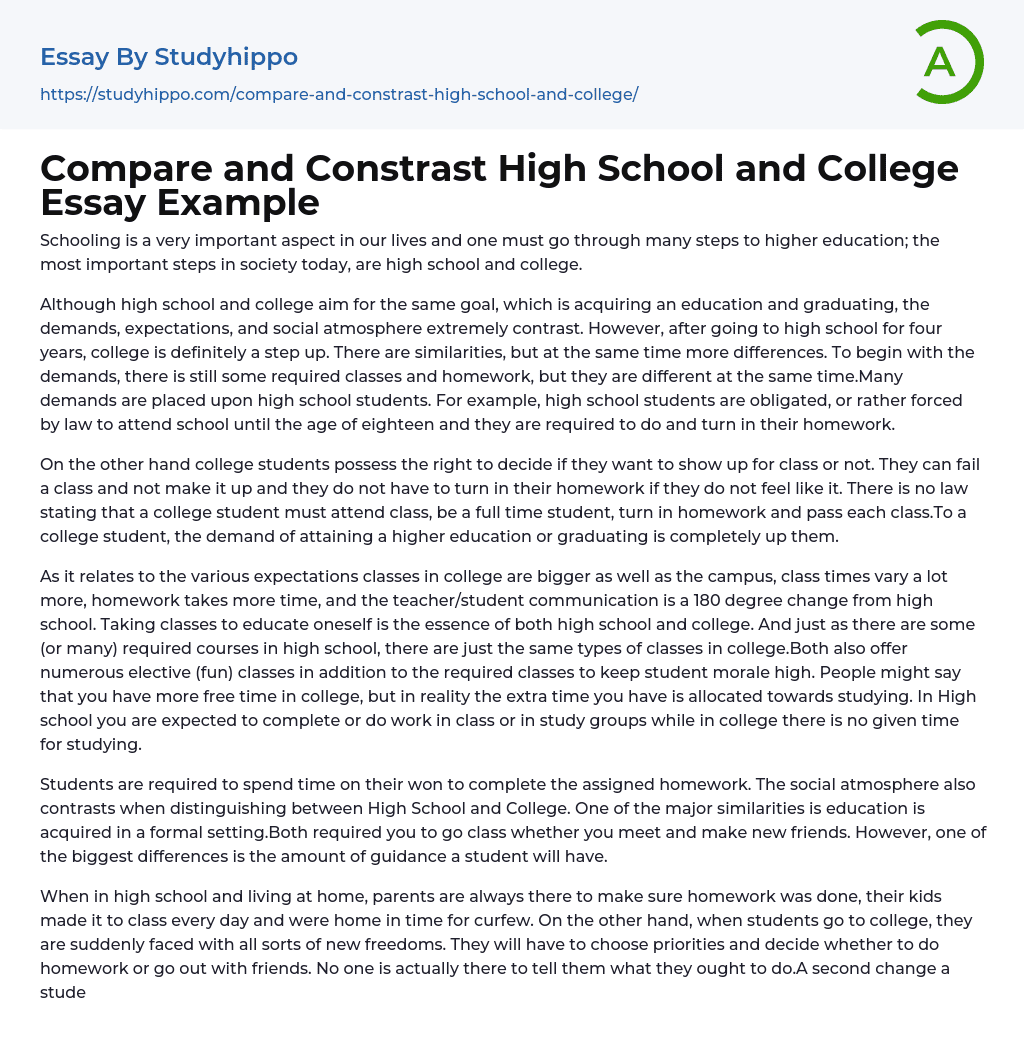There are several stages involved in obtaining advanced education, with high school and college being the primary phases in modern times.
Even though high school and college both have the goal of gaining knowledge and finishing courses, they vary in their standards, needs, and social environments. The switch from high school to college can be difficult because of the similarities as well as differences between them. While some classes and tasks are obligatory at both levels, there may be substantial differences in what is expected. High school learners must meet numerous responsibilities like required attendance until age 18 and turning in homework.
Unlike in other educational levels, college students have the freedom to choose whether or not to attend their classes, submit their assignments, and get passing grades. Failing a class and not making it up is also an option. Unlike in lo
...wer levels of education, there is no requirement to attend classes or be a full-time student. The responsibility for obtaining a higher education or graduating rests solely on the college student.
College brings bigger expectations, including larger classes and campuses, greater variation in class times, more time dedicated to homework, and a complete turnaround in the dynamic of teacher/student communication compared to high school. While the essence of education remains the same in both high school and college, there are required courses and elective options offered in each. The additional free time in college is typically spent studying rather than completing work in class or supervised study groups like in high school.
To finish the allotted homework, students must devote personal time. The social environment differs distinctly between High School and College, yet education remain
a formal process. Attending classes is mandatory and facilitates making new acquaintances. However, the critical dissimilarity lies in the degree of guidance extended to students.
In high school, parental oversight is common to ensure academic and curfew compliance. But upon entering college, students face newfound freedoms that force them to balance coursework with socializing without supervision. As a result, students must take responsibility for their obligations. Furthermore, adapting to campus life entails navigating unfamiliar living arrangements and surroundings.
While solitude is possible with a bedroom at home, living with roommates and potentially strangers in college cannot be avoided. Nevertheless, both home and college are crucial for individual academic development since they establish the essential educational groundwork.
- Professor essays
- Should College be Free essays
- Should college athletes be paid essays
- College Education essays
- College Tuition essays
- Graduation essays
- College Goals essays
- Personal Statement essays
- Online Classes Vs Traditional Classes essays
- Online Education essays
- Student Loan essays
- Study Abroad Scholarship essays
- Reasons To Go To College essays
- Paying College Athletes essays
- Technology In The Classroom essays
- Academia essays
- Higher Education essays
- Language Learning essays
- Studying Business essays
- Education System essays
- Study essays
- First Day of School essays
- Scholarship essays
- Pedagogy essays
- Curriculum essays
- Coursework essays
- Studying Abroad essays
- Philosophy of Education essays
- Purpose of Education essays
- Brainstorming essays
- Educational Goals essays
- Importance Of College Education essays
- Brown V Board of Education essays
- The Importance Of Higher Education essays
- Online Education Vs Traditional Education essays
- Academic And Career Goals essays
- Academic Integrity essays
- Brown Vs Board Of Education essays
- Distance learning essays
- Technology in Education essays
- Vocabulary essays
- Writing Experience essays
- Importance of Education essays
- Early Childhood Education essays
- Academic Degree essays
- Academic Dishonesty essays
- School Uniform essays
- Academic writing essays
- Cheating essays
- Bachelor's Degree essays




